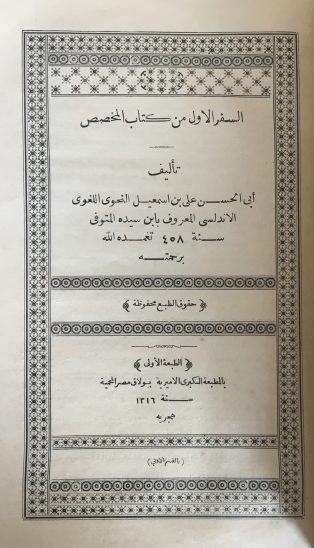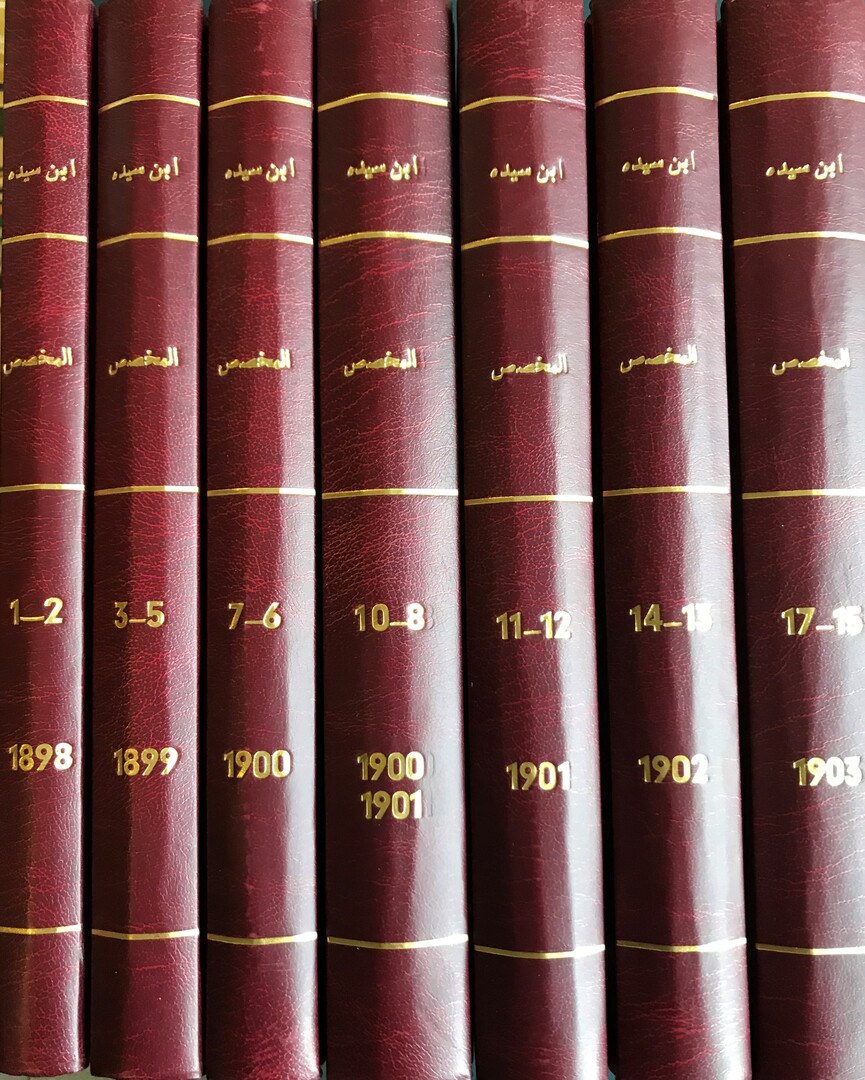Kitab Al-Mukhassas. SEVENTEEN VOLUMES IN SEVEN. كتاب المخصص
Ibn Sidah, abi al-Hasan ‘Ali ibn Isma’il.
Synopsis
Ibn Sidah (1007-1066) was an Andalusian philologist and lexicographer. He compiled two important dictionaries: al-Mukhassas and al-Muhakkam. He was blind, as was his father, and consequently his life was not very active. He devoted his life entirely to philology and lexicography disciplines, which had probably been traditionally nurtured in his family.
Al-Mukhassas may be regarded as the counterpart of Ibn Manzur’s dictionary Lisan al-Arab, as both authors brought together, for the sake of comprehensiveness, a number of earlier works, although Ibn Manzur’s sources (five in all) are much fewer than Ibn Sidah’s. It should be noted
however, that one of Ibn Manzur’s sources is al-Muhakkam itself, derived by Ibn Sidha from a large number of sources that he used in al-Mukhassas. ‘The most prominent philologist whose influence on Arabic lexicography was felt for generations. He developed a fantastic memory which aided him in compiling voluminous lexicons. In the introduction, Ibn Sidah explained that one reason prompting him to compose such a lexicon was that previous lexicons were incomplete and deficient, failing to do justice to the great wealth of the Arabic language and lacking full and lucid explanations of terms. He concluded that Arabic is so noble, perfect, and elegant that God must have helped to make it so through His teachings and inspirations. ’Chejne.
There are only two known manuscript versions of this book, the complete one in Cairo (4-187) and two incomplete volumes in the El Escorial Library, Spain. (575).
Bibliographic references: GAL I, p. 308. EI II, 445. OCLC 20111625; Chejne p. 190-191; Al-Bustani: Da’irat al-Ma’aref Vol. I p. 532.








